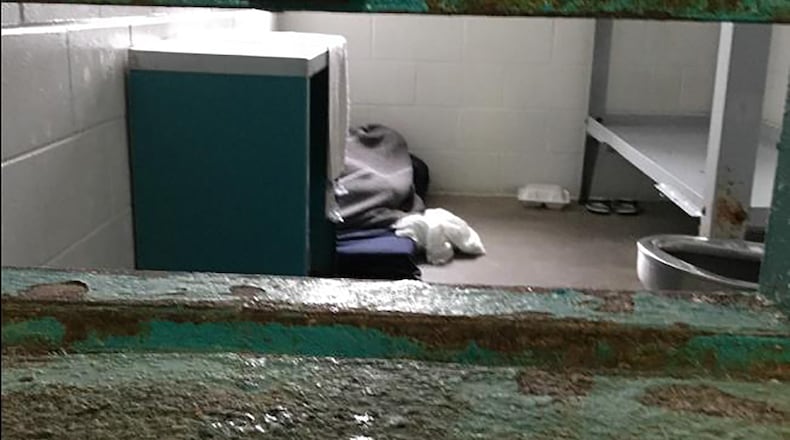Mentally ill women are being held in isolation at a south Fulton County jail under conditions that only serve to worsen their psychoses and strip away their human dignity, a federal lawsuit filed Wednesday alleges.
The lawsuit was filed by the Georgia Advocacy Office and two women being held at the South Fulton Municipal Regional Jail. The advocacy office was formed more than four decades ago to protect the legal and human rights of people with disabilities.
The plaintiffs are represented by the Southern Center for Human Rights, which sent a letter to county officials last summer and warned it would file a civil rights lawsuit if the "barbaric" conditions at the facility were not addressed and improved.
“It is unacceptable in our modern era to isolate anyone with a psychiatric disability in prolonged solitary confinement,” Southern Center lawyer Sarah Geraghty said Wednesday. “But to keep women charged with low-level misdemeanors in these wretched conditions for months on end is particularly pointless and cruel.”
The suit was filed against Fulton County Sheriff Ted Jackson, chief jailer Mark Adger and other detention officials. It also seeks class-action status on behalf of other similarly situated mentally ill women held at the South Fulton jail.
Sheriff’s spokeswoman Tracy Flanagan said late Wednesday afternoon her office had yet to receive the lawsuit. She added, “We’ve been transparent and we’ve been working with the parties to make improvements.”
In past statements, representatives on both sides of the litigation have acknowledged that the mentally ill women inmates present a challenge to manage in a jail setting.
The lawsuit includes graphic photos and details unimaginable conditions for the women detainees.
Some women were found lying on their floors with feces or food smeared over their bodies, the suit said. Many of the women were unresponsive and some who did speak did so incoherently. Others communicated by writing messages in feces or food on their cell walls, the suit said.
Pools of urine were found on cell floors, and broken toilets had filled to the brim or were overflowing, the suit said. It also said an overpowering smell of feces, urine and vomit made it difficult for people to breathe.
About the Author
The Latest
Featured



